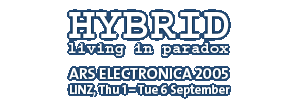|
Podcasting is the dissemination of self-produced audio
files (podcasts) via Internet in the format of a weblog
with a special RSS feed. Podcasts are mostly private transmissions
resembling radio shows dedicated to a particular topic.
The term itself is a merger of the word "broadcasting"
and the name "iPod," Apple's popular MP3 player.
Due to their Web presence in the form of a weblog, most
podcasts can also be downloaded by a user with a Web browser
like a conventional audio file.
A podcatcher is a so-called newsreader
with additional functions. The corresponding feed-URLs
(identified by an orange-colored button) are added to
the list of addresses to monitor; in the expanded settings,
you specify whether new podcasts are to be automatically
downloaded while running in the background or even automatically
inserted into a particular playlist on your favorite media
player.
RSS-Feed
RSS (Really Simple Syndication) is used to save articles
or brief summaries of them to a website and to make them
available in machine-readable form. A so-called RSS feed
or newsfeed consists of an XML file that only provides
content-for example, of a news site-but contains no layout
or design. You can use a so-called aggregator program
or feed reader to automatically download headlines or
brief summaries of stories you're most interested in.
Podcasting-Client
The RSS feed of podcasts contains so-called enclosures
that refer to audio files. They make it possible to use
special RSS aggregators (podcasting clients) that check
at regular intervals a user-compiled list of podcasts,
determine what new content is available and automatically
download it. The best-known one of these is probably Apple's
iTunes (the function is implemented in Version 4.9 and
higher). Most of these aggregators automatically set up
a playlist in programs like Windows Media Player and Apple
iTunes. In the case of synchronization with an MP3 player,
the new podcasts are then downloaded to the device.
|

